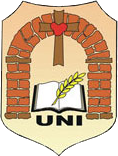Linea: Planificación y política ambiental.
Autor: Vanesa Juliet Dickel Tischler.
Correo: vanesadickel@hotmail.com
Tutor: Dr. Juan José Bonnin Acosta.
Resumen
El hombre posee la capacidad de aprender y con ello evolucionar, siendo un enfoque dado cada vez más direccionando hacia el modernismo, el uso de la tecnología y la industrialización, influyendo el aprendizaje desde edades tempranas en donde se desarrolla su carácter, los intereses, conocimientos, hábitos, etc., influyendo este periodo en lo que se será en la edad adulta. Se busca una sociedad consciente e informada sobre temas ambientales, sus problemas y respectivas soluciones, ayudando a generar ciudadanos participes en su comunidad, formando parte activa en la resolución de conflictos, generando y fomentando la formación de ciudadanos responsables con su medio. La investigación contempló a dos grupos de estudiantes de EEB (Educación Escolar Básica) del tercer ciclo, de la zona urbana y rural, donde en una primera intervención se dio énfasis al conocimiento, percepción, gestión, sensibilidad y comportamiento ambiental, siempre enfocado a la percepción de los estudiantes. Igualmente, fue aplicado, a los mismos grupos, una serie de actividades con modelos didácticos distintos mediante una serie de encuestas valoradas por los estudiantes. Así también, fue realizada una encuesta a docentes que imparten la asignatura de ciencias naturales en EEB del tercer ciclo. Con estos datos, a partir de un análisis de los planes de estudio y, observando los modelos didácticos sugeridos, se buscó dar respuesta a una de las falencias evidenciadas en investigaciones anteriores y fundamentalmente, en la presente, la falta de interés de los estudiantes, buscando a través de una herramienta metodológica trabajar para fomentar ciudadanos conscientes e involucrados con su ambiente.
Palabras clave: Educación ambiental – Problemas ambientales – Desarrollo sostenible – Percepciones ambientales – Modelos didácticos.
Abstract
The man can learn and thus evolve, being a given approach increasingly directing towards modernism, the use of technology and industrialization, influencing learning from early ages, time when their character develops, interests, knowledge, habits, etc., influencing this period in what will be in adulthood. A conscious and informed society is sought on environmental issues, their problems and respective solutions, helping to generate citizens participating in their community, being an active part in the resolution of conflicts, generating and promoting the formation of responsible citizens with their environment. The research contemplated two groups of BSE students of the third cycle, from the urban and rural areas, for the first time a general survey to knowledge, perception, management, environmental sensitivity and environmental behavior, being important for the assessment and obtaining the perception of them. A series of activities with different didactic models was applied to the same groups through a series of surveys valued by the students. Likewise, it was applied to teachers of natural sciences of EEB of the third cycle. With these data, by an analysis of the curricula and observing the suggested didactic models, it pretends to respond to one of the shortcomings evidenced in the present investigation as well as in previous investigations, which is the lack of interest of the students, looking through this a methodological tool that allows to work on it to promote citizens aware and involved with their environment.
Keywoks: Environmental education – Environmental problems – Sustainable development – Environmental perceptions – Teaching models.
